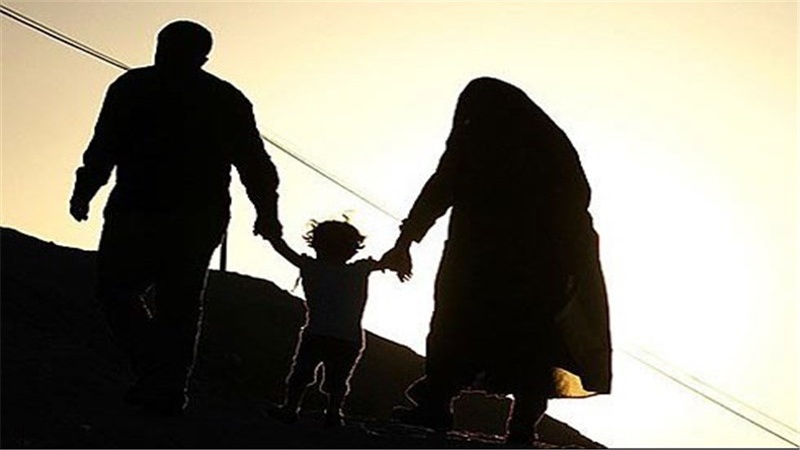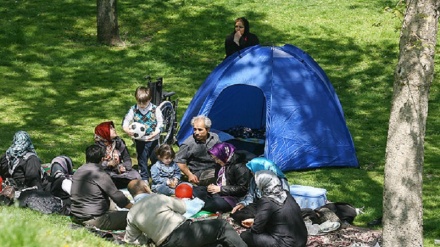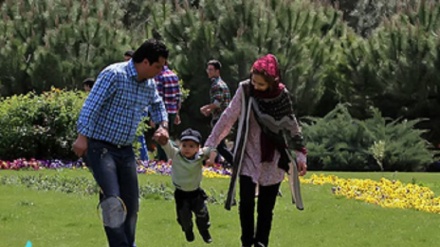Iranian Family (3)
Marriage and establishment of a family, like any other major and important task, necessitates preparedness.
If you cannot prepare yourself for an important selection, right from the very beginning, and cannot accept responsibilities, you will never experience a successful marriage. You have to remember that the main goal behind marriage is to attain peace of mind.
At times, being a hard chooser in selection of one's spouse, leads to long-term singlehood. In the meantime, those who do not take into consideration factors such as cultural and social traits, level of commitment and capacities of their significant other, will not sense security and safety in their married life and the fragile pillars of their marriage will eventually collapse, as a result.
In order to experience a successful marriage, the choices made by both parties to marriage should resonate with each other. Parts of the cultural features of your spouse's family will surely impact your marriage, given that your spouse has been initially brought up in his/her own family. Do not be judgmental, and appropriately try to understand the person you have chosen. It is not expected of individuals to make extraordinary changes in their characteristic traits, and the duty of the spouses is not to change their significant other.
You have to realize that you are about to marry your would-be-spouse and accept his/her traits as they are. If you are planning to change your significant other, you should know that there are no guarantees. Thus, most probably, you would face tensions, and conflicts in the coming future. So, pay attention to the cultural traits of your would-be-spouse and his/her related family. For instance, if a man from a religious family proposes to a girl who does not maintain religious beliefs, he should foresee the problems which would crop up after their marriage. One of the most important factors behind a sustainable relationship, a successful marriage, and a peaceful life is the strong resemblance of the two parties to marriage. This principle has been highly emphasized by the sacred religion of Islam.
Last week, we spoke of nuclear families. Given that nuclear families, in their current form and shape, have been one of the necessities of modern urban and industrial life, the relative decline of extended families in developing communities, such as Iran, has been partly expected.
In the meantime, nuclear families maintain a number of different forms and shapes. One of its forms is the connected and cohesive nuclear family. In this type of family, one or a number of the relatives of one spouse, live under the same roof with the main members of the family. In relation to the inner strength and power of the family, and administration of the family, the members of the family heed the head of the family, which distinguishes this type of family from the extended families. Connected nuclear families are highly common in the East, Islamic countries, and Iran. within numerous nuclear families; grandparents, or siblings of one of the spouses live under the same roof with the main family members. The presence of parents of the spouses in the related home, mainly maintains cultural and economic roots.
Mr. and Mrs. Hosseini live with their daughter, two sons, and Mr. Hosseini's parents. Mr. Hosseini's parents are seventy-years old. They previous lived in a village. However, due to the insistence of their son, they sold their house and plot of land and migrated to Tehran. Gradually, due to their son's financial woes, they were forced to sell their house and live with their child. Although their circumstances are difficult, they are grateful to God Almighty and make every effort to ease their lives by sympathizing with each other.
Despite of the occupational and social hardships which Mr. Hosseini grapples with, he strongly defends the presence of his parents in his house. Meanwhile, Mrs. Hosseini is highly patient, and respects and honors her husband's parents.
Based on a recent body of studies, nearly 58% of Iranians prefer the independence of young couples from their parents. However, Islamic teachings have granted an especial feature to this family model in Islamic communities. Islam's emphasis on the rights of parents, especially elderly parents, slims the possibility of their marginalization, or their accommodation in nursing homes. These studies indicate that only 2% of Iranian people consider nursing homes as an option for their elderly parents. Meanwhile, roughly 23% of individuals in Iran consider residence of elderly parents with their married children as an appropriate approach.
It can be said that Iranian families have not adopted the Western world's models, and their emphasis on Islamic values has cemented their familial bonds.
Respecting your spouse in the presence of others; expression of gratitude, flexibility in behavior, and creativity in life are some of the features of a peaceful marriage. Spouses can boost each other's self-confidence via respecting each other, and by praising each other's abilities in the presence of others. The positive aspects of your spouse are reinforced with your admirations.
MR/SS



